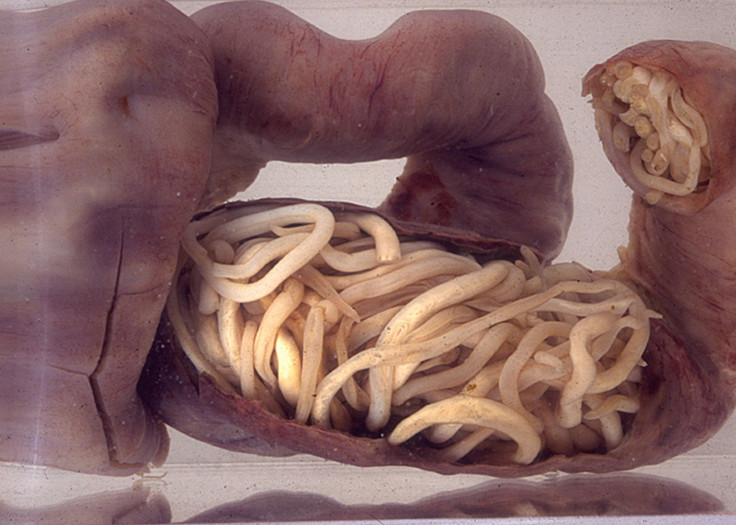Ancient Poop Shows Greeks Had Parasitic Worms, Confirms Historic Texts

Archaeologists found evidence in 5,000-year-old poop samples to back up the historic medical text of Hippocrates, the ancient Greek physician who has been one of the world’s most influential figures in medical history.
The scientists scraped the old poop off the surfaces of human pelvic bones from 25 burial sites in Greece, according to a study in the Journal of Archaeological Science: Reports. Four skeletons from different time periods, going from the Stone Age through the Bronze Age to the Roman Period, were found to have eggs from intestinal parasites. The oldest positive sample came from the 4th millenium BCE and the most recent was from between 146 BCE and 330 AD.
Hippocrates had described parasitic worms in some of his medical texts more than 2,000 years ago. The team compared its findings of worms in the ancient poop to the written descriptions to learn more about which parasites were affecting the ancient Greeks.
The parasites identified in the feces samples were the roundworm and the whipworm. They came from skeletons on the Greek island Kea, near the island Hippocrates lived on, Kos.
“Little is known about infectious disease and parasites in the prehistoric inhabitants of the islands of the Aegean, in contrast to later time periods,” the study said. “This study of ancient parasites shows how we can combine archaeology with history of medicine to better understand the discoveries of key early scientists and medical practitioners.”
According to the researchers, the parts of the ancient texts that describe a worm called “Helmins strongyle” was probably talking about the roundworm and the “Ascaris” found in the literature could have referred to the whipworm.
The samples from the Stone Age are the earliest confirmation of parasitic worms in Greece.
“The mention of infections by these parasites … includes symptoms of vomiting up worms, diarrhea, fevers and shivers, heartburn, weakness, and swelling of the abdomen,” the University of Cambridge explained in a statement about the research. “Descriptions of treatment for intestinal worms … were mainly through medicines, such as the crushed root of the wild herb seseli mixed with water and honey taken as a drink.”
The roundworm and the whipworm are still popular intestinal parasites today. Treatments have improved, however. According to the Mayo Clinic, the treatment for roundworms is an anti-parasite medication that kills off the adult worms, but severe infections may require surgery to remove the creatures.
© Copyright IBTimes 2024. All rights reserved.











